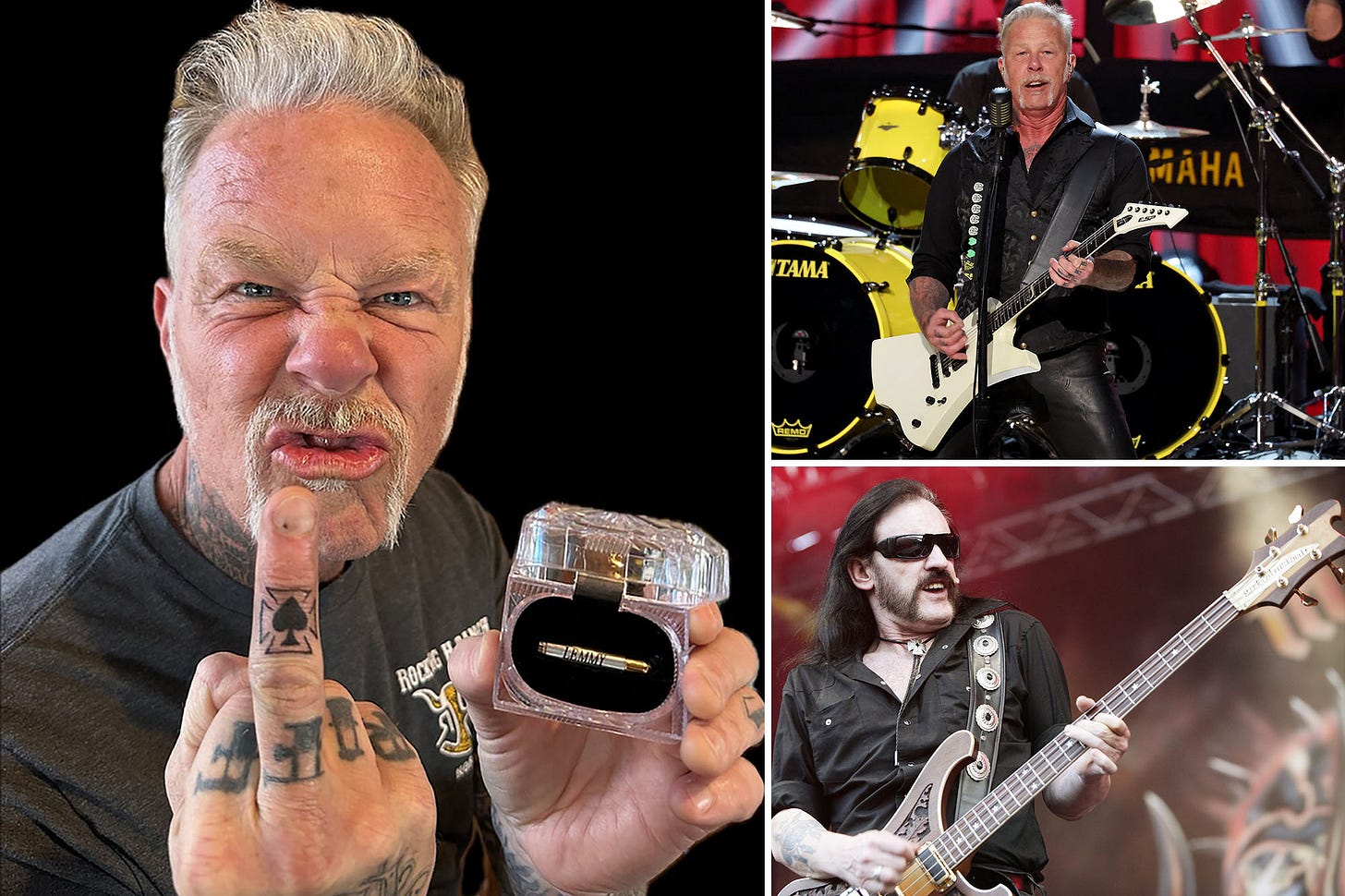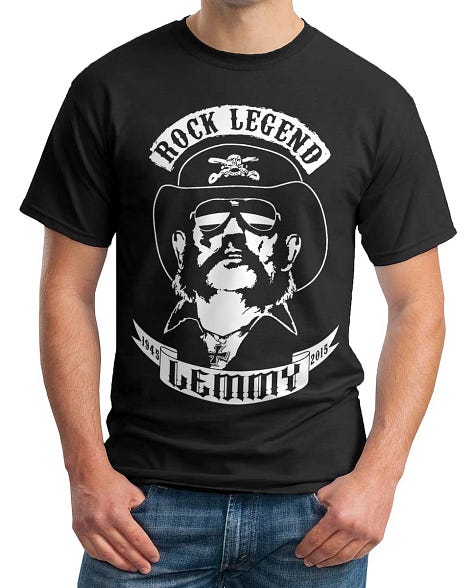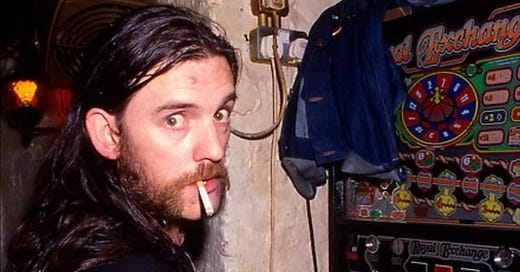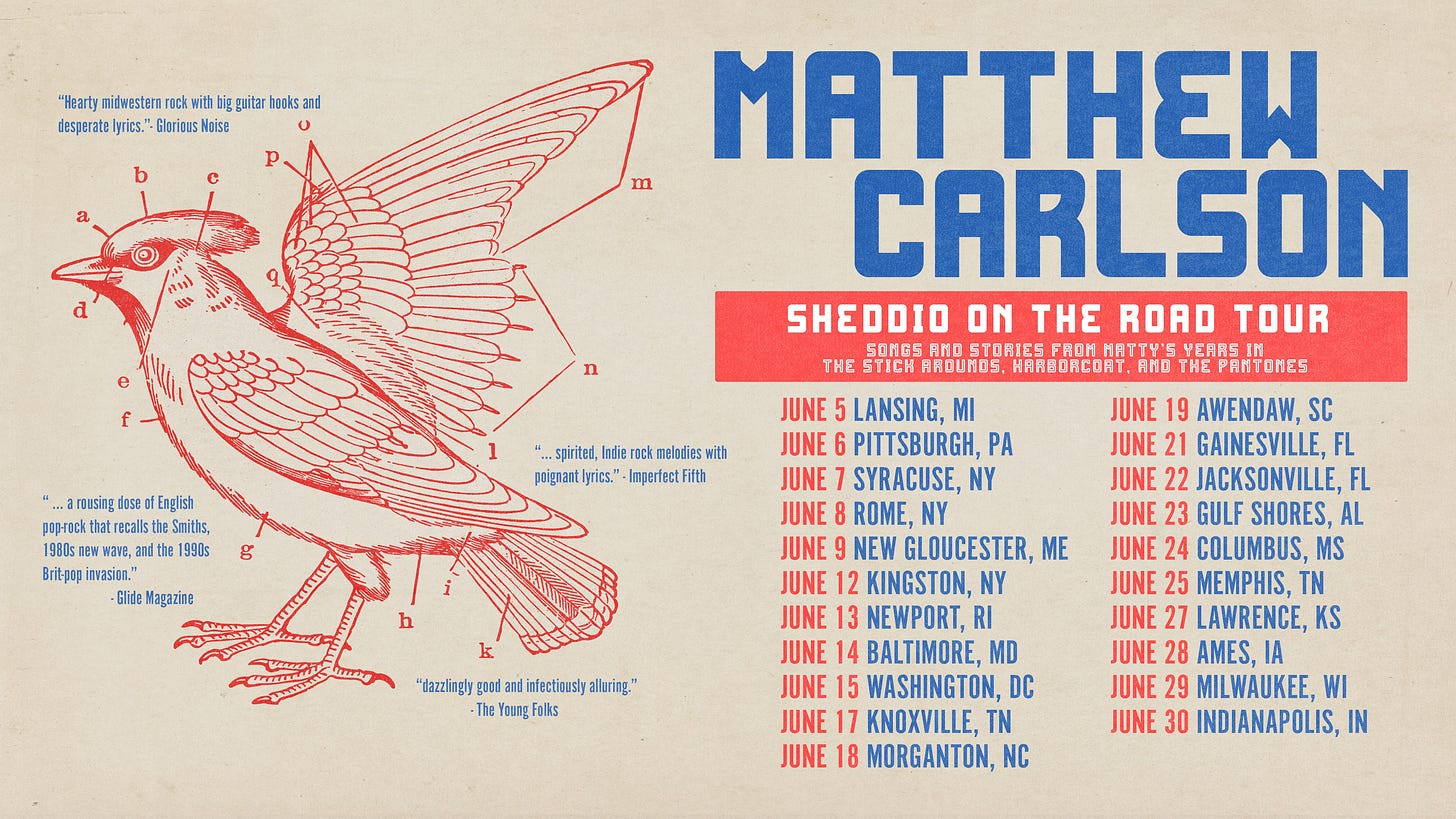The Nic of Time #2: Lemmy Outta Here! What Propelled the Motörhead Engine
He lived his life like he played his music: Hard. In more encounters than you and I could muster, studio engineer Nic Briscoe found Lemmy to be nowhere near his well-crafted public image. Surprised?

One Rocker’s Tribute
“There’s no doubt that without him there wouldn’t be a Metallica. When he was around, it just felt like things were going to be OK. My vision of him was as a statue of a man that was immortal. When he passed, it scared me, like, ‘where’s our captain now?’. He’s been a godfather to us.”—Metallica co-founder/singer/guitarist, James Hetfield to Kerrang!, per BBC.com, April 2024
A Life…Well, Lived
Ian Fraser Kilmister (December 24, 1945 – December 28, 2015), better known as Lemmy Kilmister or simply Lemmy, was the British founder, lead singer, bassist and primary songwriter of Motörhead, of which he was the only continuous member, and a member of Hawkwind from 1971 to 1975.
Lemmy continued to record and tour regularly with Motörhead until his death on December 28, 2015 in Los Angeles, where he had lived since 1990. He was diagnosed with prostate cancer two days before his death. Alongside his music career, he had minor roles and cameos in film and television.
He was known for his hard-living, road-driven lifestyle, which included chain-smoking and daily consumption of large amounts of alcohol and amphetamine.
I’d say Lemmy was demonstrably an idealist, and he lived and breathed what he did.
Nic Briscoe

“The Nic of Time”: Periodic short bits edited and “carefully adorned” from the original essays by early-’80’s Trident Studios/London assistant engineer,
from his The Song’s the Thing! Substack!“The Nic of Time #1” can be found here:
This excerpt is taken from Nic’s recent “The Ace of Spades & The One-Armed Bandit,” accessible by clicking here.
1985: Nic’s Diplomacy Evident at Embassy
Nic’s account: The Embassy Club, in New Bond Street in Mayfair, was a bit different: You never quite knew what or who to expect there. They had good live music from time to time, especially showcases of up-and-coming talent. You could go there sometimes on a Friday evening and it would be almost empty, more like a quiet bar. Or it could be rammed to the gunwales.

Sometimes it would be heaving with celebrities and industry professionals from music, film, TV, and theatre. Sometimes, just very stupid, very rich people visibly spending stupid amounts of money! You never knew who you’d see there or run into: Maybe some socialite like Mim Scala. Or a rock god like Mick Jagger. Or some supermodel like Naomi Campbell, or perhaps some British Royal or European Aristo.
One thing you could almost count on during 1985 was that Lemmy would more than likely be there. More or less, Lemmy would be installed and static in one of two places in The Embassy: He was either at the bar, or he was standing, or sitting on a barstool, in front of the one-arm bandit machine (aka slot machine).
Mostly, he was at the one-arm bandit.
Wherever he was he either had a cigarette in his hand, in the ashtray next to him, or in his mouth. He always had a long drink; it looked like a bourbon and coke.
Quite often he’d have on a Stetson, sunglasses, and even a long leather coat.
If he was at the bar on his own, he was just looking straight ahead. He didn’t really look around at all that was going on in the club.
If he was at the slot machine, he was totally focused on that.
I was long past being starstruck, but Lemmy, even back then, was kind of a legendary figure. I guess he and Motörhead had been mainstream-chart-famous since about 1980. And he was kind of being claimed by the Heavy Metal contingent as one of theirs, along with Ritchie Blackmore (Deep Purple, Rainbow) and Ozzy Osbourne etc.
But, as a teenager back in 1977, we Punks knew Motörhead, and for us they were punk Rockers (notice the specific use of lowercase and caps - punk Rockers) in the same way as Dr. Feelgood, or Eddie & The Hot Rods, or (of course) the song “Silver Machine” from 1972 by Hawkwind with Lemmy singing, at 27… it was all PUNK.
Protopunk. Space Rock. Pub Rock. To me, for us teenagers, Lemmy was an archetypal punk rocker!
I blundered over to him by the slot machine, and stood next to him. Going for aloof, I fumbled a bit with my hands and pockets, and then watched the reels revolving. He continued for a minute and then looked my way and pinned me with his gaze, in a very straightforward way, not irritated or annoyed. Basically, his look said, “What the fuck do you want?”
In one short burst, I told him my theory: That “Ace of Spades” — which I loved — was more punk than metal. It was more Technical Punk Rock.
After explaining my theory, Lemmy kind of nodded and “Mmmm”-ed as if considering the proposition, all the while looking straight into my eyes. Then he turned his head back to face the reels again, and continued playing.
Indeed, according to a July 2021 article on MetalHeadCommunity.com, Lemmy “always flatly refused to accept Motorhead’s inclusion in heavy metal. His reasons have been simple, summing up that he and his colleagues have always played in the band with a Rock essence.
“Furthermore, the sound they projected was of an incredibly strong power, but without affecting the meaning of their music. Finally, his opinion concluded that volume is not everything, something that some metalheads, according to his words, still could not understand.”
I remained standing next to him watching, and he didn’t seem to mind or care at all; he just carried on with his game.
FRONT ROW & BACKSTAGE: Regardless of genre “assignment,” this 2010 congregation of Lemmy acolytes seems to underscore the point: Lemmy was influential and inspirational to many, regardless of musical style.
Here, introduced by Judas Priest lead singer, Rob Halford, and wrestling “Ace of Spades” to the ground are Lemmy, Slash from Guns N’ Roses, and, in the culmination of a dream since a teen, Foo Fighters’ Dave Grohl on drums:
Back to Nic: After a minute or two, when it felt like I wasn’t interrupting, I continued: “My name is Nic, and I’m an audio engineer at Maison Rouge Studios. I’m a musician, too, and I have a publishing deal. I’m trying to get a record deal, with my mate Jamie; he’s over there,” I said as I pointed him out.
Remember, I was twenty-two and I’m guessing Lemmy was around forty. And he’d made it, in my eyes. Anyway, he just kind of nodded and acknowledged as he continued playing.
That was the beginning of some very short, but very influential (for me) conversations I had with him whenever I saw him at The Embassy or elsewhere, maybe eight or ten times, max.



Lemmy had a presence that’s difficult to explain: He was intense, but not to the point of being overpowering or overwhelming. You felt you were being listened to and involved in a conversation, not being talked at. He had very strong, clear opinions and he voiced them, strongly and clearly.
I’d say the most direct way I can describe my experiences with him is that he was very clever, extremely astute, very genuine, and very authentic.
I’d say we talked about two topics: Politics and the music business. When I say we talked, Lemmy talked, while I made an occasional comment or asked a question.
And when I say we talked about politics, not detailed, nuanced deep-dives and analysis. It was more generally to do with how all politicians were corrupt and we didn’t need any of them.
About the music business, he was just very encouraging, but urged caution in what were shark-infested waters. He expressed that music could be influential and that songs, in particular their lyrics, could have a big impact.
This had a big impact on me, in particular, because at the time my music publisher only seemed to want Jamie and I to supply them with trite, three-minute love-song bubble-gum, a product they could sell, and basically knocked back anything we came up with that went into more profound areas.












Hi Guys. Summer is here in Spain, it’s official, just been on our terrace putting up the sun sails… and I came in for a peak at my phone… and Wow! Firstly, thank you, Brad, as ever for all the support and encouragement. And guys, thank you for commenting. I don’t remember exactly which post of Brad’s it was, but in the comments a few of us had a debate about categories — and I agree, it matters not, one man’s category is another man’s… well I don’t know what, can’t quite finish that analogy 🤷♂️ A good song is always a good song, end of story. "Silver Machine" and "Ace Of Spades" are exceptional. I guess in my twenty-two year old post-punk head I was just being a bit territorial, although I also loved Black Sabbath and Rainbow.
About loud… I say ABOUT LOUD, yep we can talk about that, but you may need to speak up, ‘coz my hearing (especially the high frequencies) is shot!
I don’t want to get into some standoff about the loudest gigs… I just want to say (and ask anybody else who worked in studios in the 80s and 90s to corroborate this) if you never sat in the sweet spot in front full-size reference monitors, next to a producer who just had a line and says to you ‘just nudge up the main fader a tad more during this playback” well, you don’t know what loud is…
Maybe one exception to that could be standing in front of a late 70s PA stack with your head in a tweeter or bass-bin… so maybe I need to rethink and concede that assertion... 🤔
Thanks again for the comments.
A genuinely interesting person. Motorhead was all I listened to for quite a while there. I had to stop when he passed away.